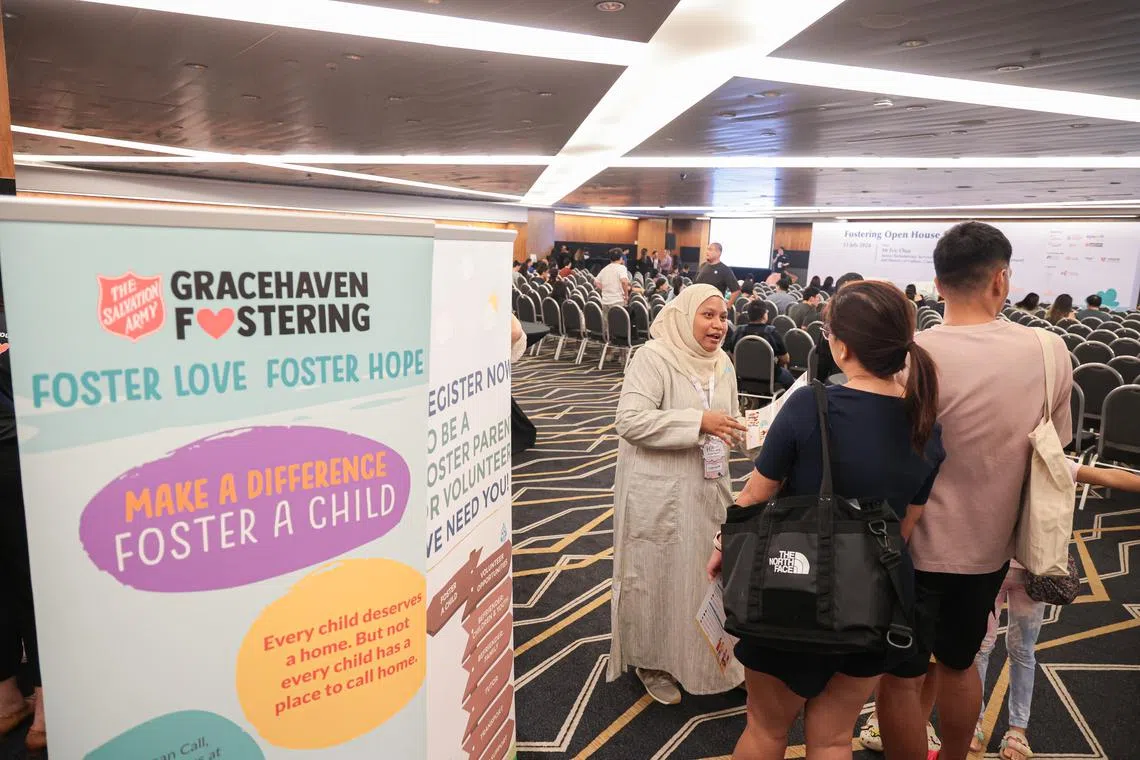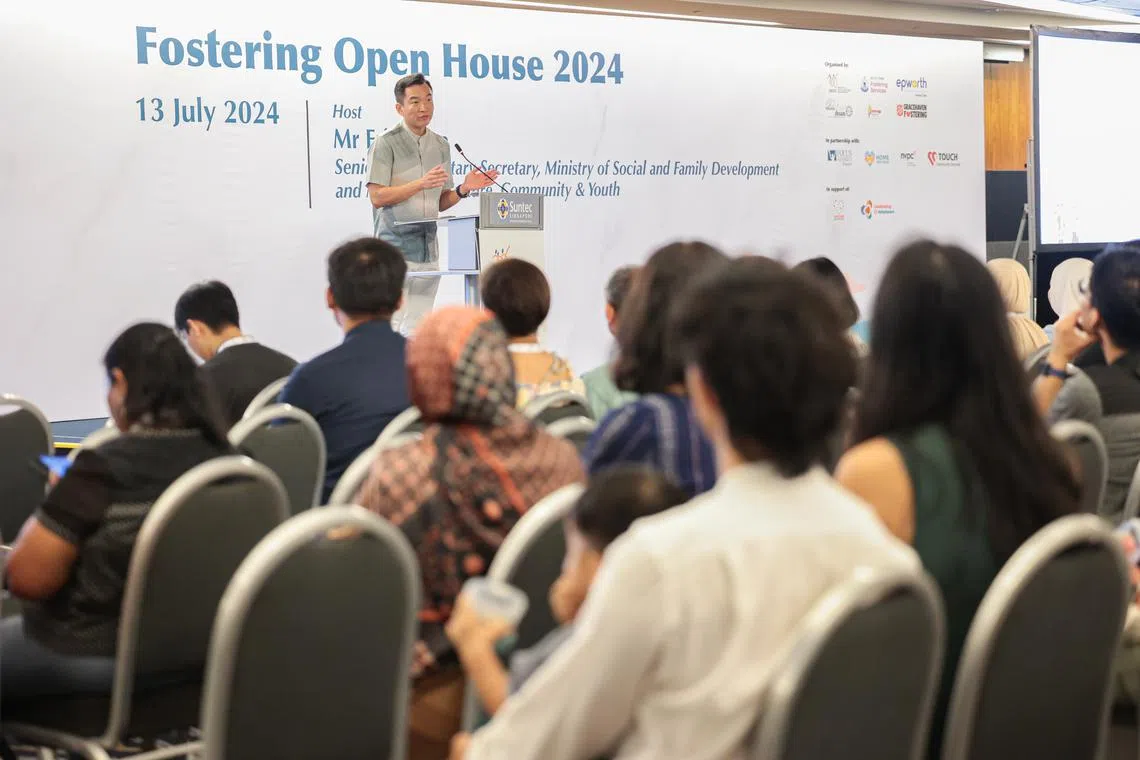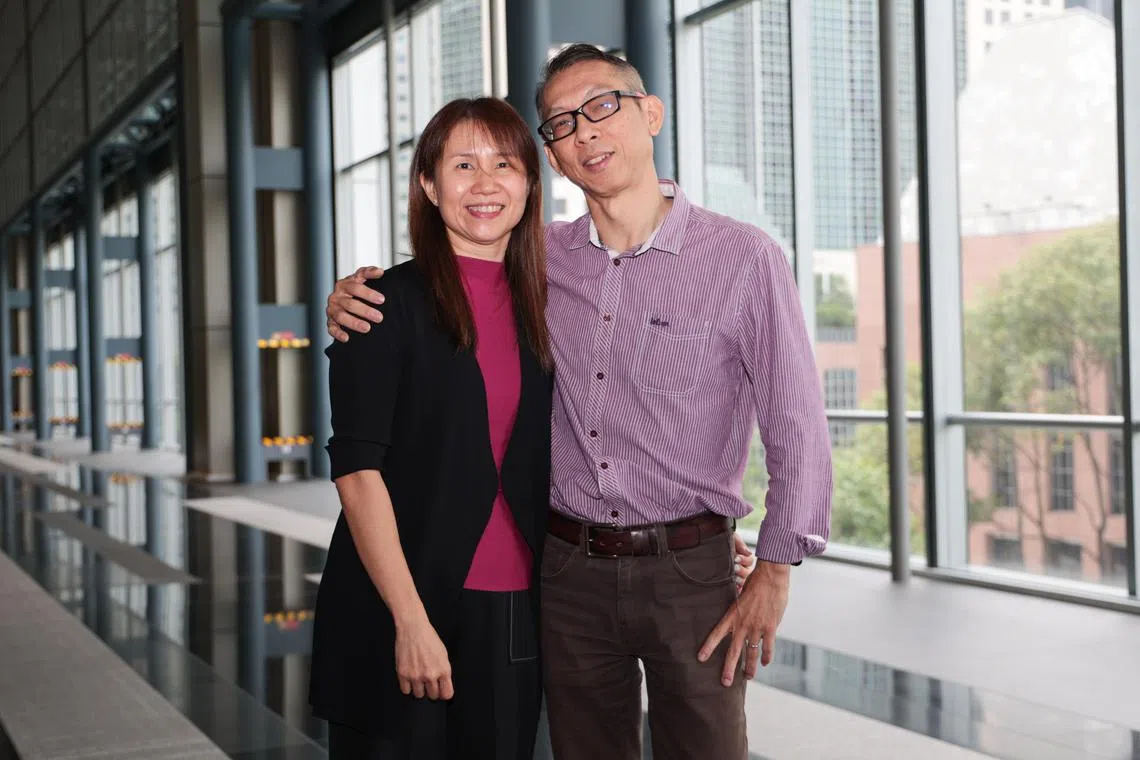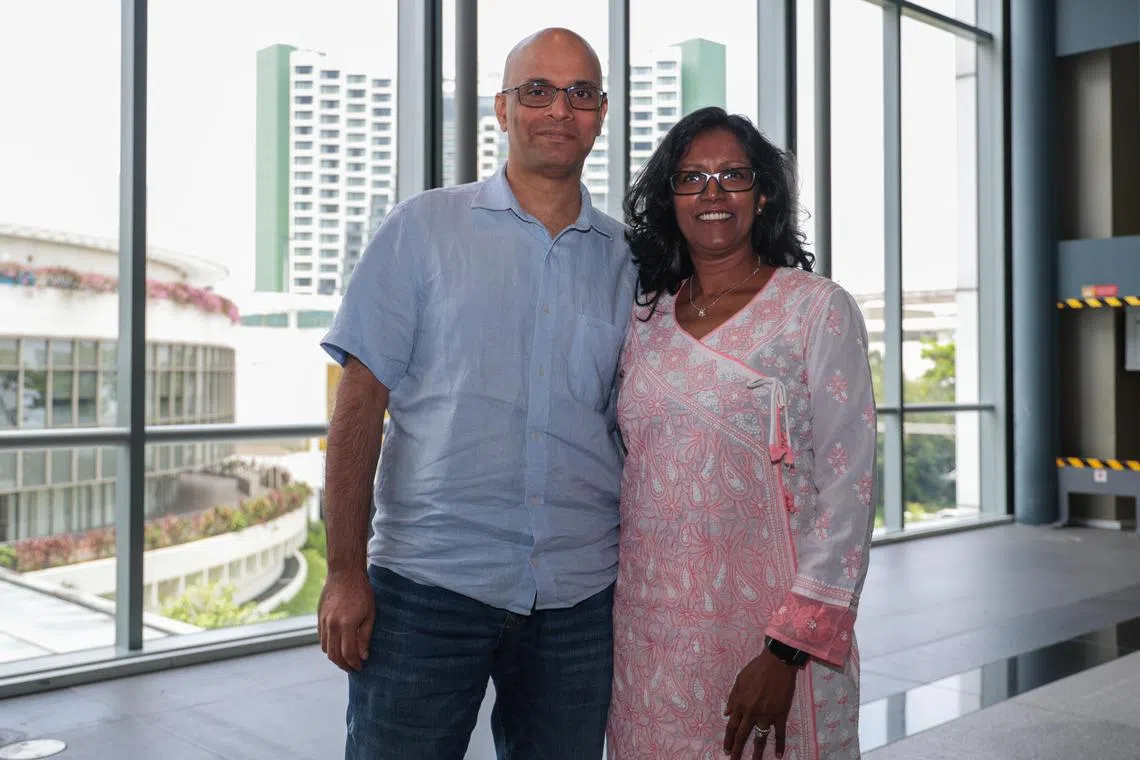Youth moving from foster care to independent living to be given more support: MSF
Sign up now: Get ST's newsletters delivered to your inbox

The enhanced scheme will see the foster children paired with an aftercare caseworker who will prepare them for independent living.
PHOTO: LIANHE ZAOBAO
Follow topic:
SINGAPORE - He has never known his biological family, but Mr Hunter Tan found a forever home in the foster family that took him in when he was just a baby.
He grew up with three older sisters and two loving parents, who saw him through his school years and national service.
When he turned 21 in 2024, his social worker told him that he was “officially out of the system”.
Fostering is a temporary arrangement, and the aim is for the children to be reunited with their birth families.
The children grow out of the system when they turn 21, and for those staying in children’s homes, it means moving out.
When asked what his next steps were, Mr Tan said: “It was an easy choice, I will stay with my family. But I don’t know if other foster children are this lucky.”
To assist foster children like him, the Ministry of Social and Family Development (MSF) on July 13 announced that more support including financial assistance will be given to those aged 17 to 21. It will cover housing and daily living expenses, among other things.
Mr Eric Chua, Senior Parliamentary Secretary for Social and Family Development, said reunification with their families is not always possible.
The parents may be dead, mentally incapacitated, or in long-term incarceration.
“Faced with the pressure to support themselves financially after leaving foster care or children’s homes, these youth may choose to work at the expense of completing their studies and undermine their employment potential,” he said.
Mr Chua was speaking on July 13 at the Fostering Open House event held at the Suntec Convention and Exhibition Centre, where the public had access to sharing sessions by foster parents and youth who were in the system.
The enhanced scheme will see the foster children paired with aftercare case workers who will prepare them for independent living.
They will provide the children with guidance on issues of career, education, financial matters and housing, and counselling and mentorship.
The scheme is for those who are enrolled in full-time studies, training, internships or national service. The support continues until they complete their education or secure full-time employment.

Senior Parliamentary Secretary for Social and Family Development Eric Chua speaking at the Fostering Open House on July 13.
PHOTO: LIANHE ZAOBAO
If the young person is working full-time at the point of discharge, the case work will be provided for a year. MSF expects about 30 young people to benefit from the scheme annually.
The service will be provided by three children’s homes – Chen Su Lan Methodist Children’s Home, Melrose Home and Singapore Boys’ Hostel.
The ministry said more children’s homes will be progressively onboarded over the next two years.
Currently, youth who are being discharged from the foster care or children’s homes are prepared for transition by the staff of the children’s home, foster parents and foster care workers.
If they need more support, they are referred to family service centres.
No connection
Mr Tan first found out that he was a foster child at seven years old, and his first question was: “Then where are my biological parents?”
“In primary school, when I received my report card, there was a name there that I did not recognise. It was the name of my biological mother,” he said.
Mr Tan said his foster mother told him that the first and last time she saw his biological mother was at the hospital when he was born.
“So there was really no connection with my biological parents or family,” he said.

Mr Hunter Tan has never known his biological family, but he found a forever home in the foster family that took him in when he was just a baby.
PHOTO: LIANHE ZAOBAO
In his speech, Mr Chua made a call for more families to become foster parents.
“Every child deserves a safe and stable family environment to grow and to thrive,” he said, noting that there were 614 registered foster families in 2023.
“Foster parents play a critical role in providing refuge and love, allowing our foster children to reach their full potential.”
Foster parents Goh Jio Young, 55, and Tay Jin Li, 51, shared that they struggled initially when introducing the idea to the rest of their family.
It took them nine years before the couple, who have four biological children, became foster parents in 2021. They are currently caring for a three-year-old boy.

Mr Goh Jio Young and Madam Tay Jin Li said their desire to be foster parents came from an outpouring of blessings in their lives.
PHOTO: LIANHE ZAOBAO
Madam Tay said that when they first started fostering, the support from MSF and the foster community, friends and family made a difference.
“They provided us with clothes, baby cot and other essential things,” she said. “My husband and I also came up with a system to split shifts to take care of the baby, since we are both working adults.”
She added: “The worst thing in life is to feel lonely, and I see fostering as providing a place of comfort, a place that they can call home, whether it’s temporary or permanent.”
Mr Bhaskar Peri, 45, said he and his wife, Madam Peri Hema, 53, joined the fostering system after attending an event.
“I met a few other foster parents who shared their stories about how fulfilled they felt taking care of these children, and I was sold.” said Madam Hema.

Mr Bhaskar Peri said he and his wife Peri Hema joined the fostering system after attending an event.
PHOTO: LIANHE ZAOBAO
“’Open your home, and open your heart’ is a phrase I remember hearing (at the event),” she said.
The couple do not have their own children. They are currently caring for a 13-year-old girl.
“Taking care of a teenager is very different from taking care of a child from birth,” Madam Hema said. “But I realised that the important thing is to just be present.”


